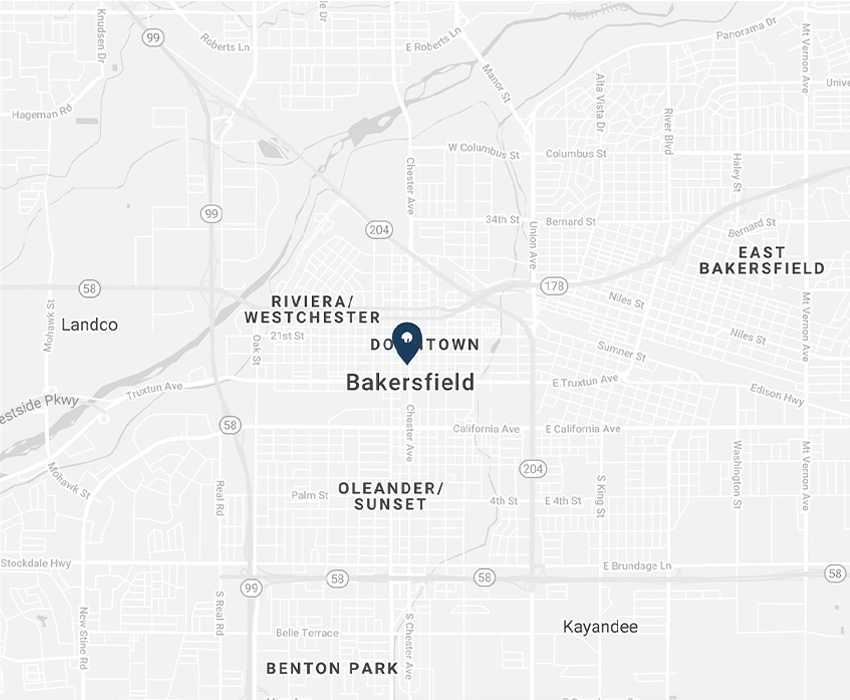During pandemic, auto crashes are down throughout California, but not in Bakersfield-Kern County
May 27, 2020 | Article by Chain | Cohn | Clark staff | Tips & Information Social Share

The coronavirus pandemic has affected all aspects of our lives, including driving habits. In fact, traffic volume is down throughout California’s roadways, which has resulted in fewer collisions and arrests for driving under the influence across the state.
Unfortunately, the same can’t be said for Bakersfield and Kern County.
While California saw an 88% reduction in the number of people killed in crashes and a 62% decrease in the number of people injured in crashes from March 19 to April 30 this year versus last year, the Bakersfield area saw a 33% increase in fatal crashes from 8 in 2019 to 12 in 2020 during this same time period, according to data from the California Highway Patrol’s Statewide Integrated Traffic Records System (SWITRS).
California also saw a 75% decrease in the number of crashes, and the total number of truck-involved collisions also saw a 60% drop, with fatal truck-involved crashes down 88%, according to CHP. The number of DUI arrests made by officers has decreased during March and April in California, from 7,224 in 2019 to 4,223 in 2020; a decrease of 42%.
Even more, the open roads have left some drivers feeling the need for speed. CHP officers issued 2,738 citations for speeding in excess of 100 miles per hour between March 19 and April 30, which is an increase of 46% from last year. Locally, the CHP’s Central Division, which covers the Central Valley, saw a 61% increase in speeding over 100 mph tickets during the same time period.
According to Verra Mobility, a photo enforcement company with 4,000 camera locations in the United States, speed violations were up 16%, and the number of vehicles going at least 20 miles per hour over the local limit increased 40% in April compared with the same month last year.
The surge in speeding and reckless behavior on our roadways has led to increased patrolling on local highways. A first offense for a 100 mph citation could lead to a $1,000 fine, loss of license for 30 days, or worse — speeding endangers lives of everyone on the road.
“During this time, taking care of yourself and one another goes beyond wearing a mask and physical distancing. We all have a responsibility care for each other on our roadways, too,” said David Cohn, managing partner and personal injury attorney at Chain | Cohn | Clark. “Please Slow down, take your time, pay attention while driving, and drive sober.”
Across the country too, U.S. highways have gotten emptier and they have also been more deadly, data from the National Safety Council shows. The fatality rate per mile driven went up by 14% compared with March 2019. The number of miles driven dropped 18.6% in March compared with the same month last year, but the death rate per 100 million vehicle miles driven was 1.22 in March, up from 1.07 in March 2019.
Chain | Cohn | Clark reminds drivers to please slow down, never drive while under the influence, and always wear seat belts. And if you are involved in a car accident, follow these three steps:
1) Obtain the name, address, insurance information, vehicle identification number (VIN) and driver’s license number of any and all persons involved in the accident, as well as the names, addresses, and telephone numbers of all witnesses.
2) Make sure that a report is filed with the police, sheriff, or highway patrol, but do not talk to anyone else, especially insurance adjusters, about the accident or sign anything without first consulting an attorney.
3) Seek medical attention immediately and explain to your physician or surgeon all of the symptoms and complaints you have been feeling since the accident occurred.
———
If you or someone you know is injured in an accident at the fault of someone else, or injured on the job no matter whose fault it is, contact the attorneys at Chain | Cohn | Clark by calling (661) 323-4000, or fill out a free consultation form at chainlaw.com.

